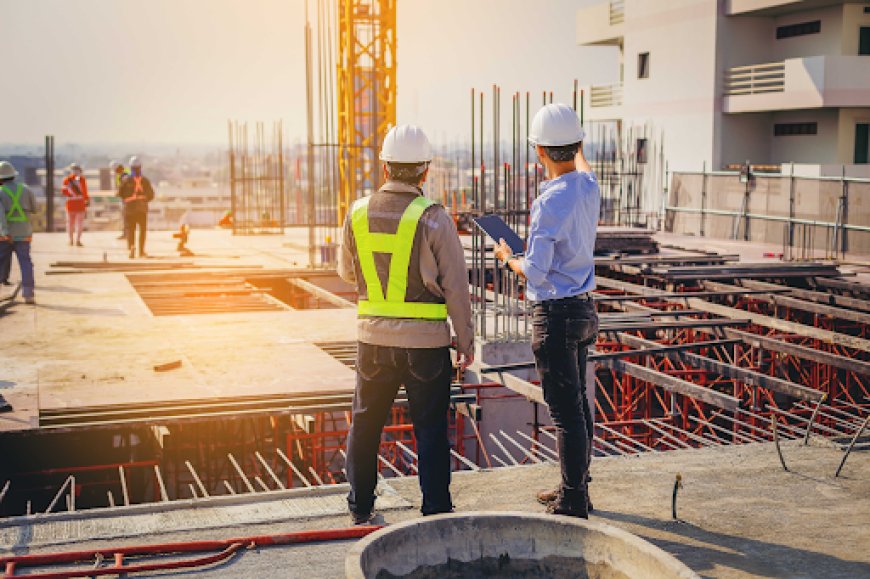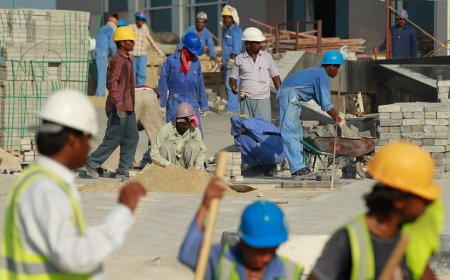Understanding Permits and Regulations for Albuquerque New Construction Commercial

When embarking on Albuquerque's new commercial construction projects, understanding the permits and regulations required is essential for ensuring a smooth and compliant building process. Whether you're planning to develop office spaces, retail shops, or industrial warehouses, complying with local laws and regulations is crucial for avoiding delays, costly fines, or even project shutdowns. Navigating Albuquerque’s building codes and zoning laws can seem complex, but with the right guidance and the expertise of a trusted construction contractor, you can confidently move through the process. This blog will dive into the permits, licenses, and regulations you must know when undertaking Albuquerque's new construction commercial projects.
Zoning Laws and Land Use Regulations
Before applying for any permits, the first step in any commercial construction project is to understand the zoning laws that govern the land where the project is taking place. Zoning laws determine how a piece of land can be used—whether it’s designated for residential, commercial, or industrial purposes. In Albuquerque, the city is divided into several zoning districts, each with specific rules regarding what type of development is permissible.
Building Permits
Once the zoning laws are clear, the next step is applying for building permits. A building permit is a legal document issued by the city or county that allows you to begin construction. The permit ensures that your project meets safety codes and building standards designed to protect the public.
For commercial projects, building permits are required for nearly every phase of construction, from initial excavation to the final inspection. In Albuquerque, your construction contractor will typically file the permit application on your behalf, but it's essential to understand what types of building permits are required. These include:
-
Structural permits for the framework, foundations, and load-bearing walls
-
Electrical, plumbing, and mechanical permits for systems installation and modifications
-
Fire safety permits for fire exits, sprinklers, alarms, and other safety features
These permits require detailed plans and drawings that comply with the city's construction codes. A skilled commercial contractor well-versed in Albuquerque’s permitting process is crucial for staying compliant and avoiding costly delays.
Environmental Considerations
Environmental regulations play a significant role in construction projects, particularly in a city like Albuquerque, which is known for its distinctive desert environment. Depending on the scope of your project, you may be required to submit an Environmental Impact Statement (EIS) or an Environmental Impact Report (EIR). These documents assess how your construction project could affect local ecosystems, air quality, water resources, and overall sustainability.
Inspection and Compliance
Once construction is underway, the city will require multiple inspections to ensure compliance with the approved plans, safety codes, and building regulations. These inspections typically occur at key stages of construction, including:
-
Foundation inspection to ensure the building’s foundation meets structural safety codes
-
Electrical and plumbing inspections to verify compliance with local utility standards
-
Final inspection to ensure all systems are functioning correctly and the building meets fire safety standards
General Commercial Vs. Industrial Construction: Key Differences
-
General commercial construction typically includes office buildings, retail centers, and restaurants. These projects often involve more stringent requirements for accessibility, aesthetics, and safety features, especially in urban areas like downtown Albuquerque. The focus is on the building's functionality and its integration into the community.
-
Industrial construction, on the other hand, involves projects like factories, warehouses, and manufacturing plants. These projects often have unique requirements related to heavy machinery, loading docks, hazardous materials, and other industry-specific needs. The permits for industrial construction are more focused on functionality and safety, with less emphasis on public-facing elements.
Both types of construction require thorough planning and compliance with city and state regulations, but understanding general commercial vs. industrial construction can help you ensure that your project meets all necessary requirements.
Conclusion
Understanding the permits and regulations for Albuquerque's new construction commercial projects is essential to avoid delays and complications. Zoning laws, building permits, environmental considerations, and inspections all play a critical role in the success of your construction endeavor.
What's Your Reaction?


























